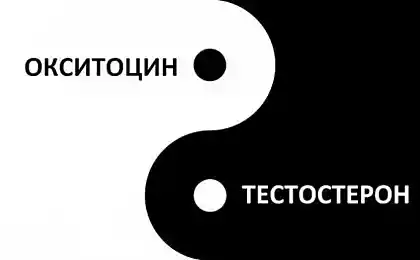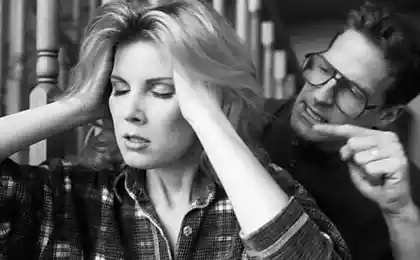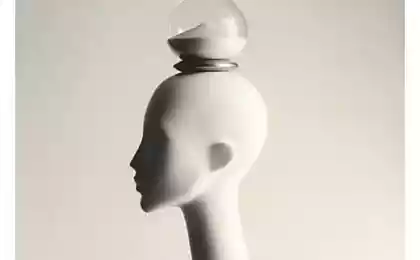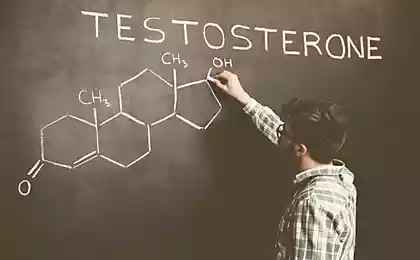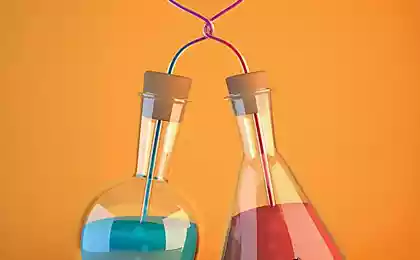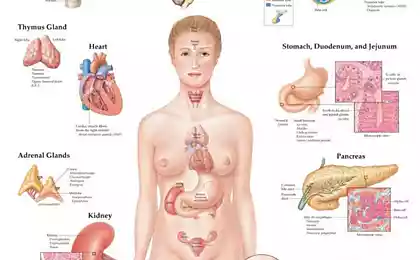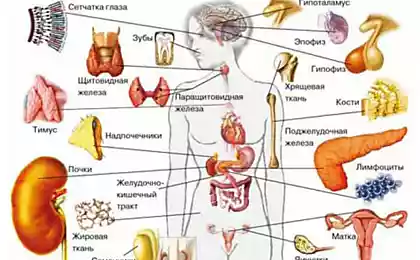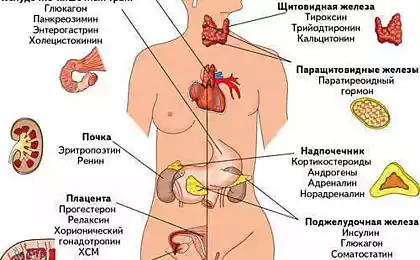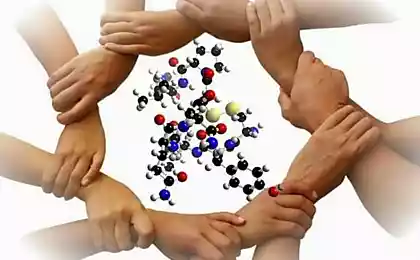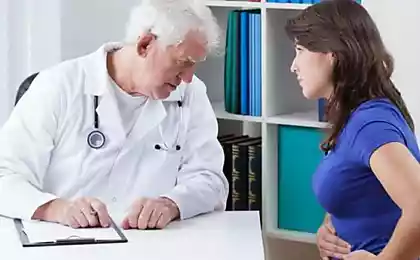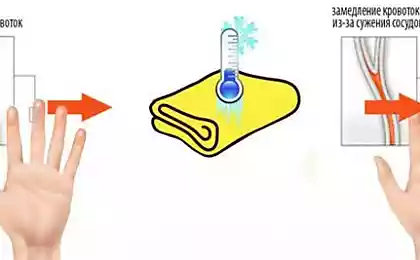721
Testosterone — what you need to know
What are hormones and where are they produced?
Hormones are substances that are produced in the body in special glands in very small quantities, but have a significant impact on the work and interaction of all organs. Without their participation none of the biological process.
Testosterone is a hormone that is produced in the testes, in particular the Leydig cells. In eggs also the formation of sperm in another cell type, the Sertoli cells. The teamwork of these two cell types ensures the normal sexual and reproductive function in men.
The formation of testosterone (and other hormones) is controlled by the Central nervous system, namely the pituitary gland , an organ the size of a pea, but whose role is huge — it is a kind of conductor of the hormonal orchestra of the organism. Testosterone regulates so-called luteinizing hormone (doctors call it simple — LH).

What effect has testosterone on the male body?
The man is not yet born, and on the seventh week of his stay in the womb is already formed male gonads — testes. Two more weeks and the testes start to produce testosterone. During the transition period (13-17 years) the boy secretion of testosterone increases sharply, and he gradually becomes a man. How does it happen?
First, under the influence of testosterone occurs normal development genitalia male — penis, testes, prostate gland (which actually distinguishes it from women) and the emergence of the so-called secondary sexual characteristics — growth of hair on face and body typical of hair on the pubic area.
The structure of the body: Testosterone promotes the formation of protein in body tissues, especially in muscle growth and develop strength which is proportional to the amount of testosterone (think of the athletes that take "steroids" to have developed musculature). Testosterone contributes to normal fat distribution in the body.
In addition, this hormone affects the formation and normal maturation of bone tissue because of testosterone the time are closed the growth of the bones. The skin condition also is directly related to testosterone, since under its action function of the sebaceous glands. Thus, the appearance of men is entirely dependent on the amount of testosterone.
Lower voice pitch among men — is also the result of testosterone — with his participation thicken vocal chords in puberty.
Another extremely important feature of a testosterone effect on sexual activity and sexual behavior. Testosterone affects certain areas of the brain, resulting in sexual desire (libido), and not only men but also women.
Normal erection is also ensured with the active participation of testosterone: it has been proven that his action is a complete relaxation of the corpora cavernosa, testosterone promotes normal blood circulation in the vessels of the penis.
Undoubtedly, sexual function and physical development will determine the health and attitude of men. However, the role of testosterone is not so limited. In fact, there is no one system of organs, which, in varying degrees, not be affected by the testosterone.
Cardiovascular system:
Central nervous system: Testosterone affects the following processes:

How does testosterone deficiency?
The above-described effects of testosterone on the body, respectively, a deficiency can manifest different symptoms, the most common are:
Why Mature age men testosterone levels can be reduced?
It was found that the testosterone levels in men about 30 years of age begins to decrease gradually each year by 1-2%. As a result, to 50-55 years (and in some cases before) the contents of testosterone may be only about 1/2 the amount at a young age. In addition, with age, increasing the amount of a particular protein in the blood that binds sex hormones, which also leads to a reduction of biologically active testosterone. Developing a condition called age-related hypogonadism.
Amount of testosterone in adulthood and old age also depends on the genetic (innate) factors, such as the sensitivity of tissues to the action of testosterone.
Equally important to testosterone levels have the various diseases of the internal organs.
What diseases can lead to testosterone deficiency?
In addition to the physiological factors, hypogonadism can cause acute and chronic diseases, medication, which ultimately reinforces the age-related decline in testosterone levels.
Among the diseases of internal organs low testosterone can cause:

What is the impact of medicines on testosterone and sexual function?
Medications for various diseases that can affect the levels of testosterone in the blood. Therefore, self-medication is invalid, only a doctor can advise You on treatment, taking into account possible adverse effects on sexual function.
What is medication:
1. uses for high blood pressure:
How is the testosterone?
To find out which You have testosterone, we need to take a blood test in the morning (preferably in the range from 7 to 11 hours), since it is in the morning levels of testosterone in the blood maximum. In addition, necessary and other special analyses — determination of the level of LH, a protein that binds sex hormones, and a number of other tests that the results of the inspection prescribed by a doctor.
At the same time, testosterone deficiency is suspected on clinical symptoms. To this end, developed a number of special questionnaires and scales. Answering a few questions, You can assume reduced testosterone or not.
Rating scale the levels of androgens
1. You will experience a reduction of libido (reduced sexual pleasure, lack of desire sexual contact)?
2. You become less energetic?
3. You mentioned reducing the fork and vynoslivost?
4. You have declined growth?
5. You noted the decrease in "enjoyment of life" (the feeling that life passed peak)?
6. You become sad and/or irritable?
7. You say reducing the quality of the erections?
8. Have you noticed a recent deterioration in Your ability to participate in sports?
9. You fall asleep after lunch?
10. You have a decreased performance?
Testosterone deficiency is possible with the positive response to questions 1.7 or any other three questions.
Swimming dragon: exercise that will strengthen the spine and kidneys
How to increase testosterone levels without steroids
Is it possible to raise the testosterone level if it is reduced?
It is possible and necessary. For this there are a number of drugs, which are so-called HORMONE replacement THERAPY (HRT). HRT testosterone helps to normalize its level in the blood and the symptoms of its deficiency.
Specific drug treatment regimen You prescribed by a doctor taking into account the indications and possible contraindications. Talk to a specialist!
The materials are for informational purposes. Remember, self-life-threatening, for advice regarding the use of any medicines and methods of treatment, contact your doctor.published
Source: www.urogynecology.ru/diseases/andrology/testosterone/
Hormones are substances that are produced in the body in special glands in very small quantities, but have a significant impact on the work and interaction of all organs. Without their participation none of the biological process.
Testosterone is a hormone that is produced in the testes, in particular the Leydig cells. In eggs also the formation of sperm in another cell type, the Sertoli cells. The teamwork of these two cell types ensures the normal sexual and reproductive function in men.
The formation of testosterone (and other hormones) is controlled by the Central nervous system, namely the pituitary gland , an organ the size of a pea, but whose role is huge — it is a kind of conductor of the hormonal orchestra of the organism. Testosterone regulates so-called luteinizing hormone (doctors call it simple — LH).

What effect has testosterone on the male body?
The man is not yet born, and on the seventh week of his stay in the womb is already formed male gonads — testes. Two more weeks and the testes start to produce testosterone. During the transition period (13-17 years) the boy secretion of testosterone increases sharply, and he gradually becomes a man. How does it happen?
First, under the influence of testosterone occurs normal development genitalia male — penis, testes, prostate gland (which actually distinguishes it from women) and the emergence of the so-called secondary sexual characteristics — growth of hair on face and body typical of hair on the pubic area.
The structure of the body: Testosterone promotes the formation of protein in body tissues, especially in muscle growth and develop strength which is proportional to the amount of testosterone (think of the athletes that take "steroids" to have developed musculature). Testosterone contributes to normal fat distribution in the body.
In addition, this hormone affects the formation and normal maturation of bone tissue because of testosterone the time are closed the growth of the bones. The skin condition also is directly related to testosterone, since under its action function of the sebaceous glands. Thus, the appearance of men is entirely dependent on the amount of testosterone.
Lower voice pitch among men — is also the result of testosterone — with his participation thicken vocal chords in puberty.
Another extremely important feature of a testosterone effect on sexual activity and sexual behavior. Testosterone affects certain areas of the brain, resulting in sexual desire (libido), and not only men but also women.
Normal erection is also ensured with the active participation of testosterone: it has been proven that his action is a complete relaxation of the corpora cavernosa, testosterone promotes normal blood circulation in the vessels of the penis.
Undoubtedly, sexual function and physical development will determine the health and attitude of men. However, the role of testosterone is not so limited. In fact, there is no one system of organs, which, in varying degrees, not be affected by the testosterone.
Cardiovascular system:
- promotes the expansion of coronary vessels
- slows down the process of atherosclerosis
- prevents the development of cardiac hypertrophy in hypertension
- reduces symptoms of coronary heart disease
- the condition of the prostate gland
Central nervous system: Testosterone affects the following processes:
- attention, memory and speed of thinking
- mood (a large amount of testosterone contributes to aggressive behavior, low — on the contrary, causes depression)
- orientation in space
- a marked antidepressant effect

How does testosterone deficiency?
The above-described effects of testosterone on the body, respectively, a deficiency can manifest different symptoms, the most common are:
- depression
- the decrease in the concentration of
- fatigue
- reduced muscle mass and strength
- decrease in sexual desire
- erectile dysfunction — problems with the development and retention of erection
- infertility due to a decrease in the number of sperm
- osteoporosis (brittle bones)
- tides
- reducing the size and soft texture of the testicles
- anemia (low red blood cells)
- reducing the size of the prostate gland
Why Mature age men testosterone levels can be reduced?
It was found that the testosterone levels in men about 30 years of age begins to decrease gradually each year by 1-2%. As a result, to 50-55 years (and in some cases before) the contents of testosterone may be only about 1/2 the amount at a young age. In addition, with age, increasing the amount of a particular protein in the blood that binds sex hormones, which also leads to a reduction of biologically active testosterone. Developing a condition called age-related hypogonadism.
Amount of testosterone in adulthood and old age also depends on the genetic (innate) factors, such as the sensitivity of tissues to the action of testosterone.
Equally important to testosterone levels have the various diseases of the internal organs.
What diseases can lead to testosterone deficiency?
In addition to the physiological factors, hypogonadism can cause acute and chronic diseases, medication, which ultimately reinforces the age-related decline in testosterone levels.
Among the diseases of internal organs low testosterone can cause:
- chronic obstructive pulmonary disease, bronchial asthma
- coronary heart disease
- hypertension
- diabetes
- obesity
- cirrhosis of the liver
- chronic alcoholism

What is the impact of medicines on testosterone and sexual function?
Medications for various diseases that can affect the levels of testosterone in the blood. Therefore, self-medication is invalid, only a doctor can advise You on treatment, taking into account possible adverse effects on sexual function.
What is medication:
1. uses for high blood pressure:
- methyldopa
- clonidine
- reserpine
- β-blockers (atenolol, inderal)
- prazosin
- verospiron
- gipotiazid
- hlortalidon
- digoxin
- verapamil
- antiarrhythmic drugs
- antidepressants
- hypnotics
- amphetamines
- reglan
- ranitidine
How is the testosterone?
To find out which You have testosterone, we need to take a blood test in the morning (preferably in the range from 7 to 11 hours), since it is in the morning levels of testosterone in the blood maximum. In addition, necessary and other special analyses — determination of the level of LH, a protein that binds sex hormones, and a number of other tests that the results of the inspection prescribed by a doctor.
At the same time, testosterone deficiency is suspected on clinical symptoms. To this end, developed a number of special questionnaires and scales. Answering a few questions, You can assume reduced testosterone or not.
Rating scale the levels of androgens
1. You will experience a reduction of libido (reduced sexual pleasure, lack of desire sexual contact)?
2. You become less energetic?
3. You mentioned reducing the fork and vynoslivost?
4. You have declined growth?
5. You noted the decrease in "enjoyment of life" (the feeling that life passed peak)?
6. You become sad and/or irritable?
7. You say reducing the quality of the erections?
8. Have you noticed a recent deterioration in Your ability to participate in sports?
9. You fall asleep after lunch?
10. You have a decreased performance?
Testosterone deficiency is possible with the positive response to questions 1.7 or any other three questions.
Swimming dragon: exercise that will strengthen the spine and kidneys
How to increase testosterone levels without steroids
Is it possible to raise the testosterone level if it is reduced?
It is possible and necessary. For this there are a number of drugs, which are so-called HORMONE replacement THERAPY (HRT). HRT testosterone helps to normalize its level in the blood and the symptoms of its deficiency.
Specific drug treatment regimen You prescribed by a doctor taking into account the indications and possible contraindications. Talk to a specialist!
The materials are for informational purposes. Remember, self-life-threatening, for advice regarding the use of any medicines and methods of treatment, contact your doctor.published
Source: www.urogynecology.ru/diseases/andrology/testosterone/
